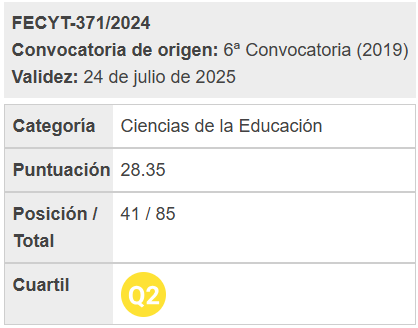Los efectos del volumen de entrenamiento de natación sobre la inteligencia emocional y la calidad de vida en personas con discapacidad física
Discapacidad física, Adultos, Ejercicio acuático, Intervenciones
DOI:
https://doi.org/10.58727/jshr.102618Resumen
El objetivo principal de este estudio fue evaluar el efecto de aumentar el número de sesiones de entrenamiento de natación sobre la inteligencia emocional y la calidad de vida; un objetivo secundario fue investigar el efecto de escuchar música durante el ejercicio sobre la calidad de vida y la inteligencia emocional, en ambos casos, de personas con discapacidad física. Es un estudio experimental. Se reclutaron 180 sujetos y se dividieron aleatoriamente en tres grupos iguales de 1 sesión por semana (1SPW o grupo de control), tres sesiones por semana (3SPW) y tres sesiones por semana+música (3SPW+música). Las variables fueron calidad de vida e inteligencia emocional evaluadas mediante el WHOQOL-Bref y el Schutte Self-Report Emotional Intelligence Test (SSEIT), respectivamente. Para comparar la efectividad de las intervenciones se utilizó la prueba ANCOVA seguida de la prueba de Bonferroni. Cuando se compararon los tres grupos al final de 12 semanas, se encontró una diferencia estadísticamente significativa entre el grupo de control y dos grupos experimentales en calidad de vida e inteligencia emocional. Sin embargo, no se encontraron diferencias significativas entre 3SPW y 3SPW+música en la calidad de vida (excepto en los ítems psicológicos) o la inteligencia emocional. Este estudio concluyó que aumentar el número de sesiones de entrenamiento (para Natación) podría mejorar la calidad de vida y la inteligencia emocional en personas con discapacidad física. Al mismo tiempo, la música no logró mejorar las variables en comparación con los resultados obtenidos al aumentar el número de sesiones.
Descargas
Publicado
Número
Sección
Licencia
Derechos de autor 2024 Farzad Rezavandzayeri, José María Cancela Carral, Helena Vila Suárez, Amir Khortabi

Esta obra está bajo una licencia internacional Creative Commons Atribución-NoComercial-CompartirIgual 4.0.





